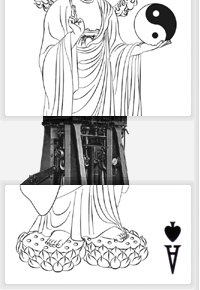When there could hardly be any criminal sanction available to Gillian at this stage, she may have to rely on civil action. As discussed earlier if she could rely on the Personal Data (Privacy) Ordinance Cap 486, the crucial matter is whether her photo is a personal data according to the law. According to Eastweek Publisher Ltd v Privacy Commissioner for Personal Data CACV331/1999, Ribeiro JA disagreed with Mr John Griffiths QC SC submission that a photograph could not be personal data. In fact, whether it could be personal data depends on circumstances. The court was of the view that “if someone’s photograph is taken with a view to its inclusion as part of a dossier being compiled about him as an identified subject, the act of photography would clearly be an act of personal data collection”, and then the second hurdle that Gillian would have to come through is to prove the collection of personal data is done by unfair means in the circumstances of the case. It is never the case that taking pictures of actors or film stars is against the ordinance so long as they are taken openly instead of an illegal mean as in the present case. Another essential element for proving personal data is whether the identity of the subject in the picture could be identified or sought to be known by the press or magazine, Easy Finder in the present. In the “Eastweek” case, the victim was phothgraphed with the intention to criticize her hairstyle and fashion taste, her identity was of no interest to the reporter. The court further ruled that “her identity would remain as secret had she not been lodging an action with the Commissioner for Personal Data. But in the present case, Gillian’s identity was of interest to both the magazine and the data user, so legally speaking, the picture of Gillian is personal data.
However, the court in this case stressed that the legislative intent of the Personal Data (Privacy) Ordinance is to protect “privacy of individuals in relation to personal data, and to provide for matters incidental thereto or connected therewith”. It does not intend to establish general privacy rights against all possible forms of intrusion into an individual’s private sphere. In fact when the HK Law Reform Commission drafted this piece of legislation, they did not intend to extend the scope of the law to things like “interest in freedom from interference with one’s person or personal privacy”, “interest in freedom from surveillance and from interception of one’s communication” etc. Therefore when other actors like Nicholas Tse, Jacky Chan etc, bullshitting their loss of personal privacy owing to the press surveillance or disturbance of the paparazzi, this law is of no assistance to them. The present law is is not suggesting the press or other media organizations fall outside the scope of the Ordinance but it would strike a balance between freedom of press, journalistic value and offensive way of reporting.
Supplementary note to the Easy Finder Incident
標籤:
左冷禪,
法律隨筆
訂閱:
發佈留言 (Atom)



0 留言:
發佈留言